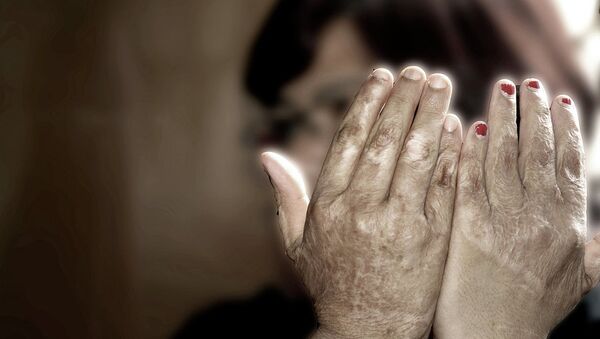This conclusion is detailed in a series of five articles published in the medical journal The Lancet. According to the authors, current global efforts to prevent violence against women and girls are inadequate.
The articles examine the prevention, response and attitudes towards violence against women and conclude that not enough is being done to prevent gender-based violence from occurring in the first place.
The Lancet suggests that one in three women in the world has experienced either physical or sexual violence from their partner, and that seven percent of women will experience sexual assault by a non-partner at some point in their lives.
One of the authors of the report is Professor Charlotte Watts, Director of the Gender Violence and Health Centre at the London School of Hygiene & Tropical Medicine. She says more investment is needed in prevention.
"To make a real difference in the lives of women and girls, we must work towards achieving gender equality and preventing violence before it even starts".
The statistics revealed in the Lancet follow a report investigating police data integrity in England and Wales that was published earlier this week. The report: ‘Crime Recording: Making the Victim Count' revealed more than 200 cases of rape weren't recorded properly and 37 cases weren't recorded at all between November 2012 and October 2013.
The study offers an insight into the culture of some police forces; one that places bureaucracy before victims, prioritising targets, rather than perpetrators. These figures from the Lancet and the latest data from the ‘Crime Recording' report suggest that the issue still isn't being taken seriously enough.
Professor Charlotte Watts, Director of the Gender Violence and Health Centre, says services need to be strengthened for women experiencing violence. "Ensuring women have access to justice is really important and needs to be strengthened if violence against women is to be taken seriously.
"Along with a strengthened judicial response and strengthened services for survivors, we need a greater focus on prevention. But we are seeing some successes. Some research preventive programs are having an impact on the levels on Female Genital Mutilation (FGM) and partner violence in specific countries and settings. The challenges are to see how we learn from those examples and build a response to all violence against women", adds Professor Watts. "I'm hopeful we can eradicate gender-based violence in a generation".
It's estimated that between 100 and 140 million girls and women worldwide have undergone FGM. In Africa alone, more than three million girls are at risk of the barbaric practice every year.
Egypt has one of the highest prevalence rates for the abuse, despite being banned in 2008 following the death of a 12-year-old girl. Figures from UNICEF reveal that more than 90 percent of married Egyptian women aged between 15 and 49 have had the procedure which involves removing part of the female genitalia.
This week, a judge in Egypt decided to deliver a not guilty verdict in the country's first trial involving FGM. Campaigners had hoped the trial would become a landmark case, helping to set a precedent and eradicate the barbaric practice. Dr. Raslan Fadl who carried out the procedure on 13-year-old Sohair al-Bataa who later died did so at her father's request. Fadl and the girl's father were both acquitted.
The prosecuting lawyer said the verdicts will encourage others to continue to carry out the crime on young women and girls. The UN has condemned the acquittal.
FGM is illegal in Britain. It's thought 170,000 women are living with the consequences of FGM in the UK and 65,000 girls under the age of 13 are at risk of FGM. But still, no one has been prosecuted.

